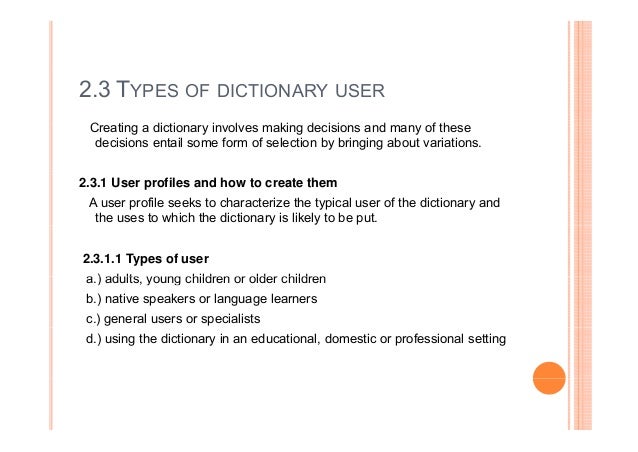
Using Data Standards as part of a well-crafted Data Dictionary can help increase the usability of your research data, and will ensure that data will be recognizable and usable beyond the immediate research team. Standards provide a commonly understood reference for the interpretation and use of data sets.īy using standards, researchers in the same disciplines will know that the way their data are being collected and described will be the same across different projects. What Are Data Standards and Why Should I Use Them?ĭata Standards are rules that govern the way data are collected, recorded, and represented. Provide consistency in the collection and use of data across multiple members of a research team.Help define conventions that are to be used across a project.Assist in avoiding data inconsistencies across a project.

Secondly, the content depends on the type of dictionary used. Why Use a Data Dictionary?ĭata Dictionaries are useful for a number of reasons. First of all, dictionaries vary widely in size and scope. The metadata included in a Data Dictionary can assist in defining the scope and characteristics of data elements, as well the rules for their usage and application.

A Data Dictionary also provides metadata about data elements. It describes the meanings and purposes of data elements within the context of a project, and provides guidance on interpretation, accepted meanings and representation. A Data Dictionary is a collection of names, definitions, and attributes about data elements that are being used or captured in a database, information system, or part of a research project.


 0 kommentar(er)
0 kommentar(er)
